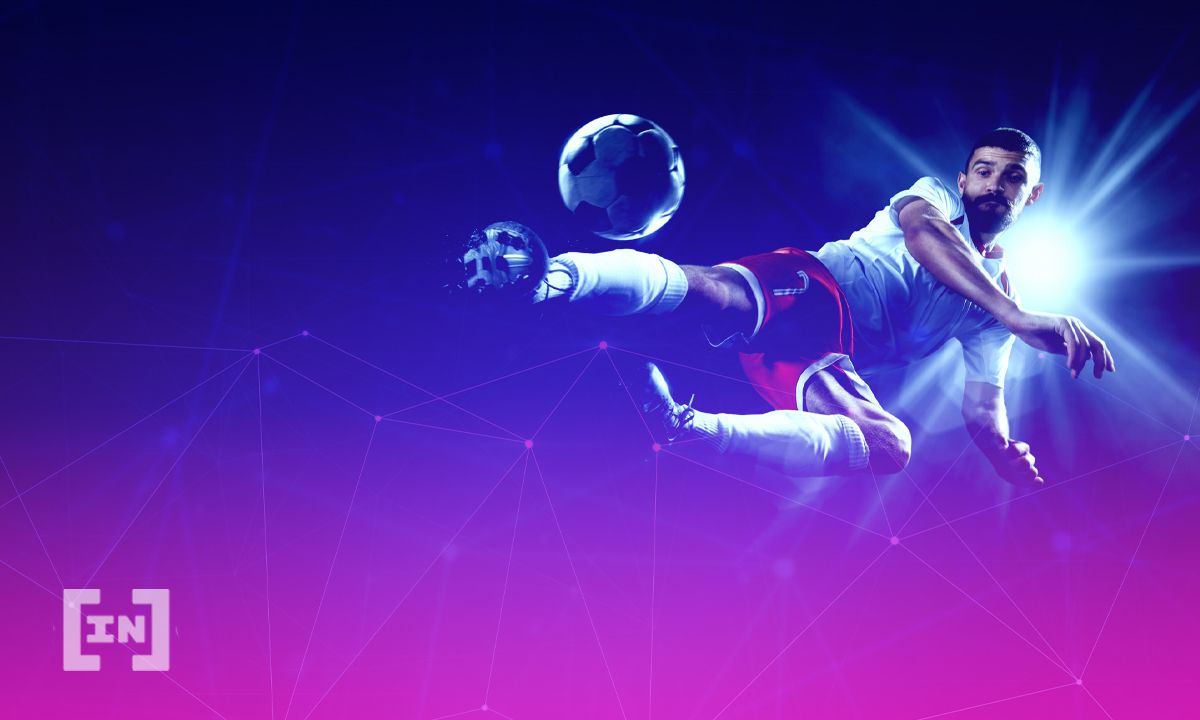The digital era has changed the ways brands and teams are connecting with their fans. By leveraging new technologies like NFTs and fan tokens, these sports brands are reaching new spaces and opening new revenue paths that were unavailable before.
The COVID-19 pandemic has played a part in the uptake of non-fungible tokens (NFTs) by sports clubs and brands. It closed traditional revenue sources and pushed teams and brands to go digital.
Today, NFTs have become one of the most in-demand technologies across multiple industries, including sport.
A quick overview of NFTs
Their uniqueness is key to their versatility, as they can serve as vehicles for different kinds of information. This is why teams like the German Soccer selection, the Barcelona FC, and institutions like the NBA are all exploring this technology—followed by utilizing it for multiple purposes.
Nike has always been quick on embracing new tech. So there’s no surprise in it becoming one of the NFT pioneers. The sports apparel brand patented a system that allows sneakers to be paired with an NFT. This then proves their authenticity and entice users to buy original products.
This system, named Cryptokicks, could also let users’ breed’ their shoes by creating algorithmically designed sneakers. Therefore, bringing a model similar to CryptoKitties to the sport.
Besides that, NFTs are powering new-age digital collectables: substitutes of the physical collectable cards with the athlete’s portrait and bio. In this sense, companies like Dapper Labs have experienced exploding growth.
Its crown jewel, NBA Top Shots, a project that sells videos of the most memorable shots in NBA history as NFTs has managed to sell more than $700 million in less than a year, according to statements from its CEO Roham Gharegozlou, with more than 150,000 unique users login into the platform every day.
Lastly, another big trend is the emergence of decentralized sports platforms, either centred around a particular sport or uniting fans of several sports at once. Partnering with teams from all over the world, they aim to create a space for fan-athlete interaction by utilizing both NFT and fan token systems.
The rise of fan tokens
Fan tokens allow professional teams to get closer to their fanbase in the post-pandemic space. They monetize interaction with their fans, pay for expenses, and sign players.
However, there’s more. Utilizing fan tokens and unique NFTs, clubs, and platforms can add a degree of gamification for the fans. As a result, they are creating an unprecedented level of immersion and improving the overall user experience.
Firstly, through tokens, fans become a part of the decision-making process. For example, they can choose what song the athlete will use for their next entrance or what video they should make next.
Secondly, they can take part in NFT drops and lotteries and receive additional VIP benefits. These could include access to exclusive meet and greet events, autographs, and merch from the team. They could even make some money via play-to-earn activities, sharing their team’s success.
The exact tokenomics will differ from club to club and from platform to platform. However, with the boom happening across the fan token and NFT industries, this market is very saturated. This breeds healthy competition, pushing platforms to create unique tokenomics where the fan tokens have real utility.
More than 37 organizations and platforms have already launched their fan tokens. Juventus FC was the first team to launch their own token but was followed by many more that saw a future in this kind of endeavour.
Now, the fan tokens are part of a $550 million business that involves multiple clubs. According to some estimations, the fan token industry can become a $10 billion industry in the next few years.
The future is digital
The NFT space saw an explosion of “PFP” avatar projects like Solana Monkey Business, which just had a sale for $2 million.
While many say that the avatar trend has already hit a point of saturation, it wouldn’t be a stretch to see more variants of this format emerge as Web3 expands.
Web users are more concerned with their privacy than ever today, and this trend highlights that. Moreover, with platforms like Twitter adding authentication for NFTs, it is likely to have enduring popularity.
This year has also been huge for generative art—the rarest pieces from Art Blocks collections like Fidenza and Ringers hitting multi-million dollar valuations.
The expanded universe of NFTs
We think that another explosion is likely in this space as blockchains like Ethereum have created a way for coders to create art to monetize their work for the first time.
Tokenized event photography is also beginning to take off. We can imagine a future where the decisive “moments” from soccer games or other events get tokenized – and you can buy the NFT straight to your phone.
NFTs will also infiltrate gaming as they empower users. This will be through play-to-earn and true ownership of in-game items. Solana’s high-speed platform is particularly well suited to this niche.
I do not doubt that teams and sport-related companies will keep exploring the potential of blockchain-based technologies and use them to keep fans more engaged with their activities.
Decision-making via fan tokens could also develop to play an essential part in the life of a team. In addition, blockchain-based licensed prediction markets could be the next tool that industry leaders might leverage to further enhance users’ participation with teams in real-time.
The concepts of NFT and fan tokens are still seen as novel by many. However, I believe it is the natural evolution of the system. It was triggered by the pandemic, the inevitable tech progress, and the reality of digitalization. All of which calls for deeper experiences, better fan service, and quality connections.
Disclaimer
In compliance with the Trust Project guidelines, this opinion article presents the author’s perspective and may not necessarily reflect the views of BeInCrypto. BeInCrypto remains committed to transparent reporting and upholding the highest standards of journalism. Readers are advised to verify information independently and consult with a professional before making decisions based on this content. Please note that our Terms and Conditions, Privacy Policy, and Disclaimers have been updated.

